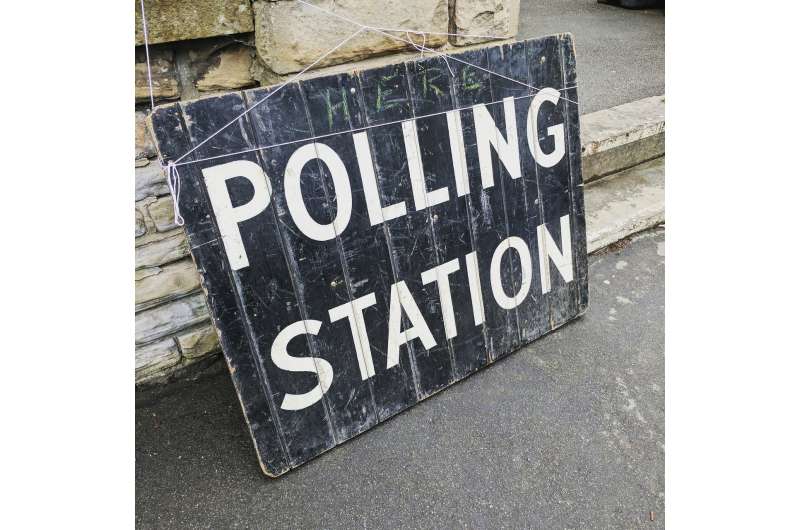Science
Research Links Voting Behavior to Increased Mortality Risk

A recent study published in the *Journal of Epidemiology & Community Health* reveals a significant connection between voting behavior and future mortality risk. Conducted by researchers examining electoral participation in Finland, the findings suggest that voting may be a stronger determinant of health than education, which has long been considered a critical factor influencing well-being.
The research focused on data from the 1999 parliamentary elections, involving a total of 3,185,572 Finnish citizens aged 30 and older. Voter turnout for this demographic was reported at 71.5% for men and 72.5% for women. The study tracked the survival of these individuals from March 21, 1999 until either their death or the end of 2020.
During this period, 1,053,483 individuals died, with 95,350 fatalities attributed to external causes such as accidents and violence, while the majority were due to underlying health issues. Notably, those who did not participate in elections exhibited a 73% increased risk of death from any cause for men and a 63% increase for women. After accounting for education levels, the risk remained substantial, with adjusted figures showing a 64% increased risk for men and 59% for women.
The researchers highlight that the disparity in mortality risk between voters and non-voters was more pronounced than the difference seen between individuals with basic versus tertiary education. The association was particularly strong concerning external causes of death, illustrating that non-voters face a significantly heightened risk.
Among specific demographics, the study found that younger men under 50 had the most pronounced difference in mortality risk related to voting behavior. Among older women aged 75 to 94, non-voters faced a higher risk of death compared to their male counterparts who participated in elections. Furthermore, among men in the lowest 25% of household income, the mortality risk associated with not voting was estimated to be 9% to 12% higher compared to other income brackets.
While this observational study cannot definitively establish causality, researchers assert that the correlation between voting and mortality is compelling. They note that voting serves as a form of social capital, which can enhance overall health benefits. Additionally, civic participation may foster other forms of engagement within communities.
As the study acknowledges, there are limitations, including the possibility that some individuals may have been unable to vote despite wanting to, or chose not to participate for various reasons. Despite these challenges, the findings indicate that a decline in voting habits may signal significant health deterioration.
The implications of this study extend beyond individual health. Researchers advocate for the integration of voting behavior as a factor in clinical assessments and public health monitoring. They emphasize that a strong association between voting and mortality raises critical questions about equitable political representation.
In conclusion, the study underscores the role of voting not merely as a civic duty but as a potential indicator of health and well-being within populations. The findings call for further exploration into how social and political engagement impacts health outcomes, highlighting the need for policies that promote inclusive participation in democratic processes.
For further reading, refer to the full study published in the *Journal of Epidemiology & Community Health* with the DOI: 10.1136/jech-2025-224663.
-

 Science2 weeks ago
Science2 weeks agoInventor Achieves Breakthrough with 2 Billion FPS Laser Video
-

 Top Stories3 weeks ago
Top Stories3 weeks agoCharlie Sheen’s New Romance: ‘Glowing’ with Younger Partner
-

 Entertainment3 weeks ago
Entertainment3 weeks agoDua Lipa Aces GCSE Spanish, Sparks Super Bowl Buzz with Fans
-

 Business3 weeks ago
Business3 weeks agoTyler Technologies Set to Reveal Q3 Earnings on October 22
-

 Health3 weeks ago
Health3 weeks agoCommunity Unites for 7th Annual Into the Light Walk for Mental Health
-

 Health3 weeks ago
Health3 weeks agoCurium Group, PeptiDream, and PDRadiopharma Launch Key Cancer Trial
-

 Entertainment3 weeks ago
Entertainment3 weeks agoMother Fights to Reunite with Children After Kidnapping in New Drama
-

 Entertainment3 weeks ago
Entertainment3 weeks agoRed Sox’s Bregman to Become Free Agent; Tigers Commit to Skubal
-

 World3 weeks ago
World3 weeks agoR&B Icon D’Angelo Dies at 51, Leaving Lasting Legacy
-

 Health3 weeks ago
Health3 weeks agoNorth Carolina’s Biotech Boom: Billions in New Investments
-

 Science3 weeks ago
Science3 weeks agoNorth Carolina’s Biotech Boom: Billions Invested in Manufacturing
-

 Top Stories3 weeks ago
Top Stories3 weeks agoDisney+ Launches Chilling Classic ‘Something Wicked’ Just in Time for October









